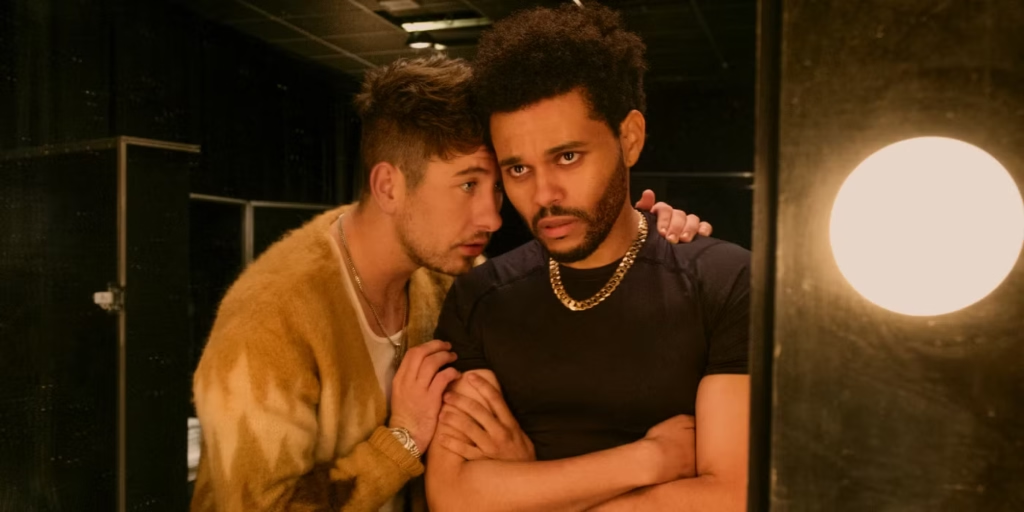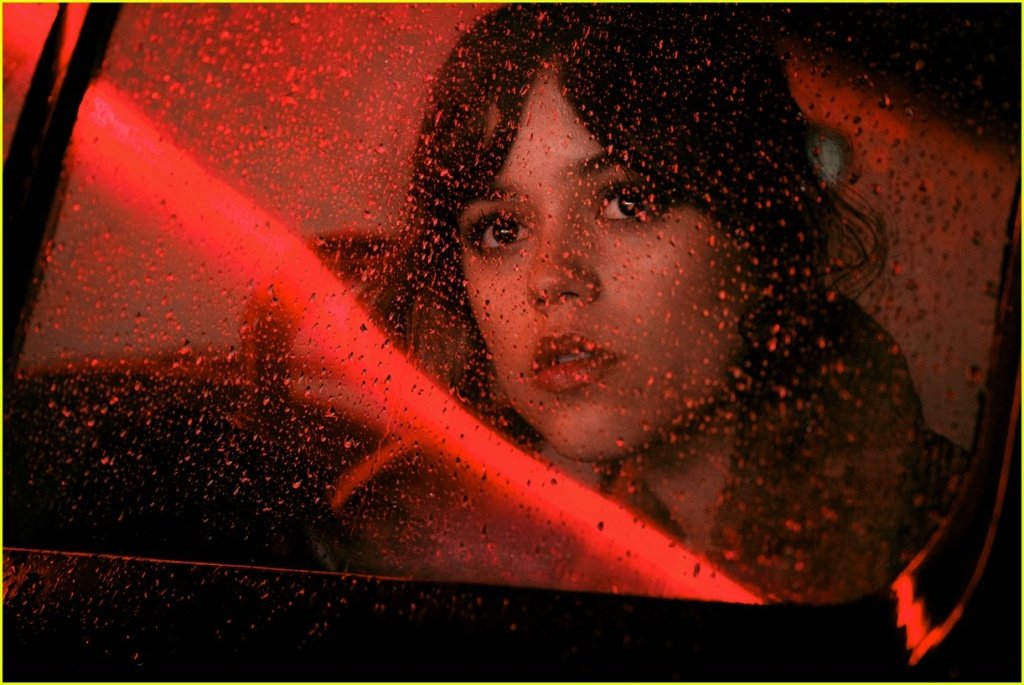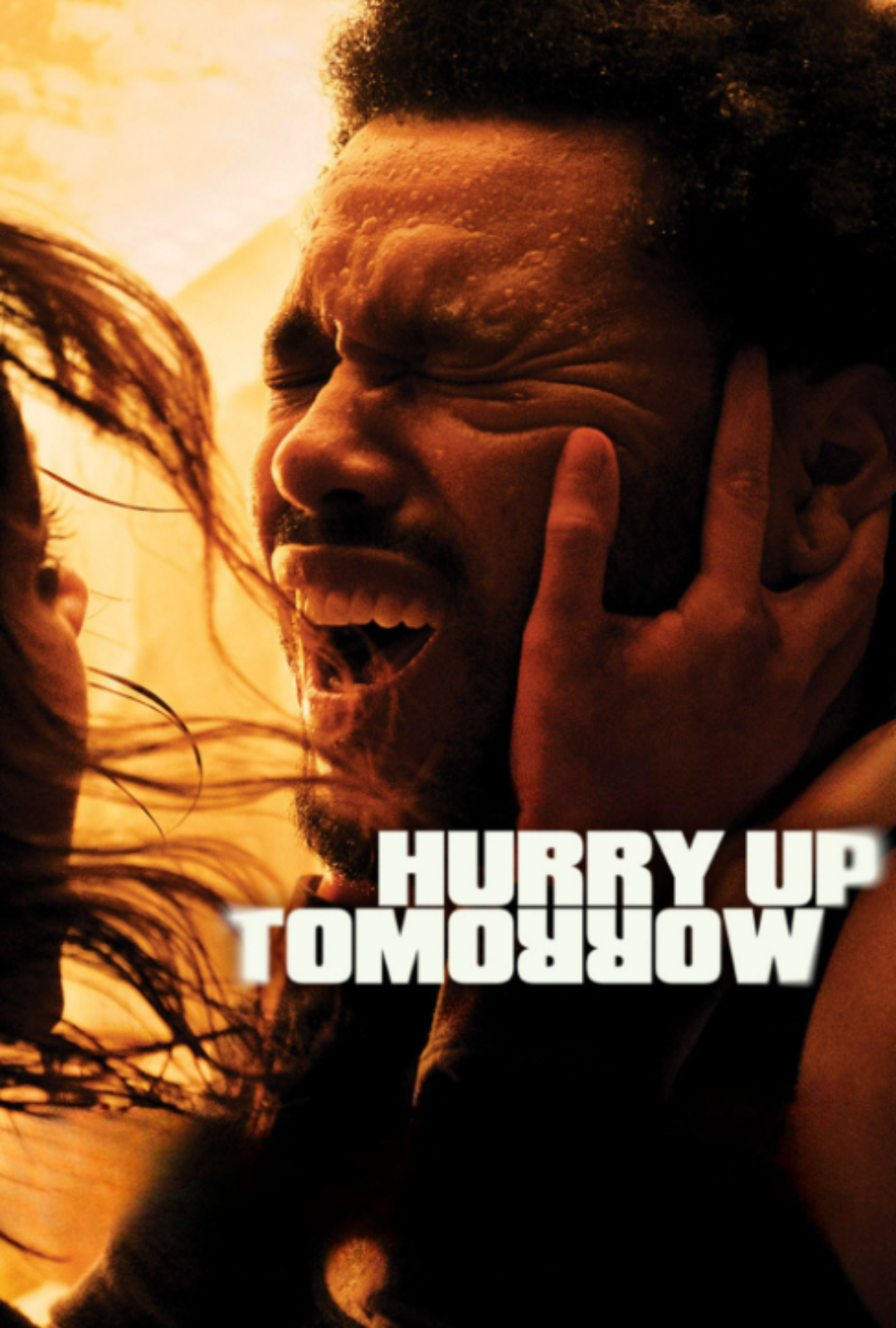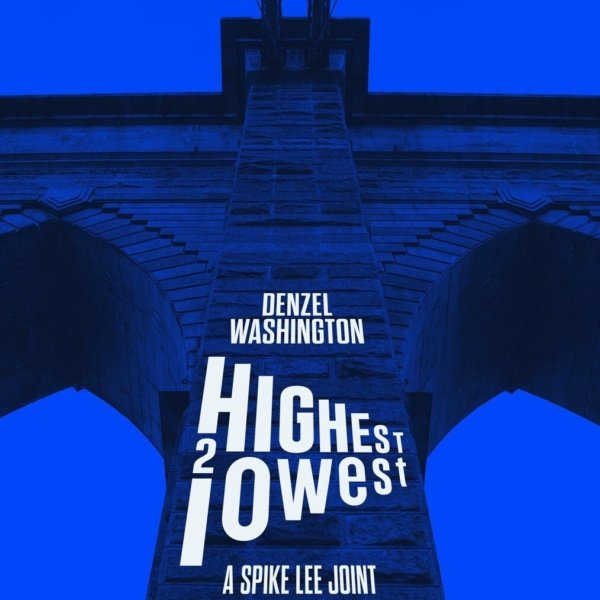Hurry Up Tomorrow
Genre: Thriller
Directed by: Trey Edward Shults
Starring: The Weeknd, Jenna Ortega, Barry Keoghan
Platform: Theaters
Release Date: May 16th, 2025
Rating: 1/5
By Crystal Justine
“An empty, self-congratulatory echo chamber that confuses overexposure for insight.”
Don’t be deceived by the trailer or the buzz — HURRY UP TOMORROW isn’t a psychological thriller. It’s a two-hour vanity project disguised as a film. Presented as bold and introspective, what it actually delivers is a self-indulgent, bloated ad for The Weeknd’s companion album and After Hours Til Dawn tour. It wants to be profound. It wants to be art. But at its core, this is brand worship masquerading as cinema. As a marketing tool? It’s borderline clever. As a movie? It quickly collapses under its own ego.
While Trey Edward Shults is credited as director, this bears little resemblance to his earlier works. It’s hard to believe Shults had full control over the creative direction because everything about HURRY UP TOMORROW feels like it’s been filtered through The Weeknd’s ego. Abel Tesfaye stars in the film, co-wrote it, and plays himself — not a character, not a fictional stand-in, but himself — and that choice is the movie’s biggest downfall. It reeks of the classic yes-man problem. When an artist surrounds themselves with people who only say “yes,” no one steps in to say, “This isn’t working,” and it shows.

What makes the film not just flawed but deeply frustrating is its narcissism. Tesfaye portrays himself as a tortured, egotistical artist struggling with the weight of his fame and trauma, except he does it through a lens that almost romanticizes the toxicity. There are scenes where he gaslights women, verbally abuses them, uses them, discards them and then has the nerve to position himself as the victim. He’s someone trying to let go and evolve. It’s manipulative, and for viewers who’ve lived through that kind of abuse, it’s potentially triggering. The film doesn’t challenge or deconstruct these actions. Instead, it frames them as deep and misunderstood, which is not just tone-deaf—it’s dangerous.
Even worse, the film beats you over and over again with exposition. The dialogue doesn’t trust the audience to interpret or engage. It screams the themes at you. There’s even a section that breaks down the lyrics to “Blinding Lights” in case you missed how important The Weeknd thinks his music is. It’s not enough to let the art speak for itself. The film insists on telling you, out loud, that it’s profound and meaningful. That kind of handholding is insulting. When a movie spends this much time declaring its own brilliance, it undercuts the very depth it’s trying to claim.
There is a version of this that could’ve worked as a short film. A visual companion piece, either bundled with the album or released as a $4.99 VOD “art project”. That could’ve been an effective way to merge music and visuals. But stretched to feature length, it collapses under its own pretension. The aesthetic is flashy, neon-soaked, and disjointed with moody lighting. It tries to mimic mood-driven arthouse films but lacks the cohesion or emotional payoff to justify it.

The cast is another tragedy of wasted potential. Jenna Ortega, who proved her star power in Netflix’s Wednesday, is given absolutely nothing to work with. This role adds nothing of value to her filmography and continues a string of underwhelming choices following Miller’s Girl and Death of a Unicorn. As her name grows, she’d be wise to start protecting her brand by prioritizing projects with substance over spectacle. Barry Keoghan fares slightly better with his performance being at least grounded, but he too is buried under a script that doesn’t know what to do. Having prior work like The Banshees of Inisherin, which earned him an Oscar nomination, this film adds absolutely nothing to his trajectory.
Abel Tesfaye is undeniably one of the most talented musicians of our time, but his strengths lie in music production, not filmmaking. He can write haunting lyrics and craft incredible auditory worlds, but as an actor and screenwriter, he’s simply out of his depth. We saw this in The Idol, and it’s even more apparent here. If acting is something he truly wants to pursue, stage work or music-centered performances might be a better path to explore, but right now, he’s not equipped to carry a film.
In the end, HURRY UP TOMORROW will appeal to the die-hard fans who will defend anything Abel does—no matter how poorly executed. Some are already pushing back on criticism with “you just don’t understand” or “you need to know his backstory,” but understanding a film and liking it are not mutually exclusive. Viewers can grasp every metaphor and still find the execution hollow and obnoxious. And that’s exactly what this is: an empty, self-congratulatory echo chamber that confuses overexposure for insight. With a stacked Summer box office and better films on the horizon, don’t waste your time or money seeing this in theaters. It’ll be dumped on streaming soon enough — where it belongs.



